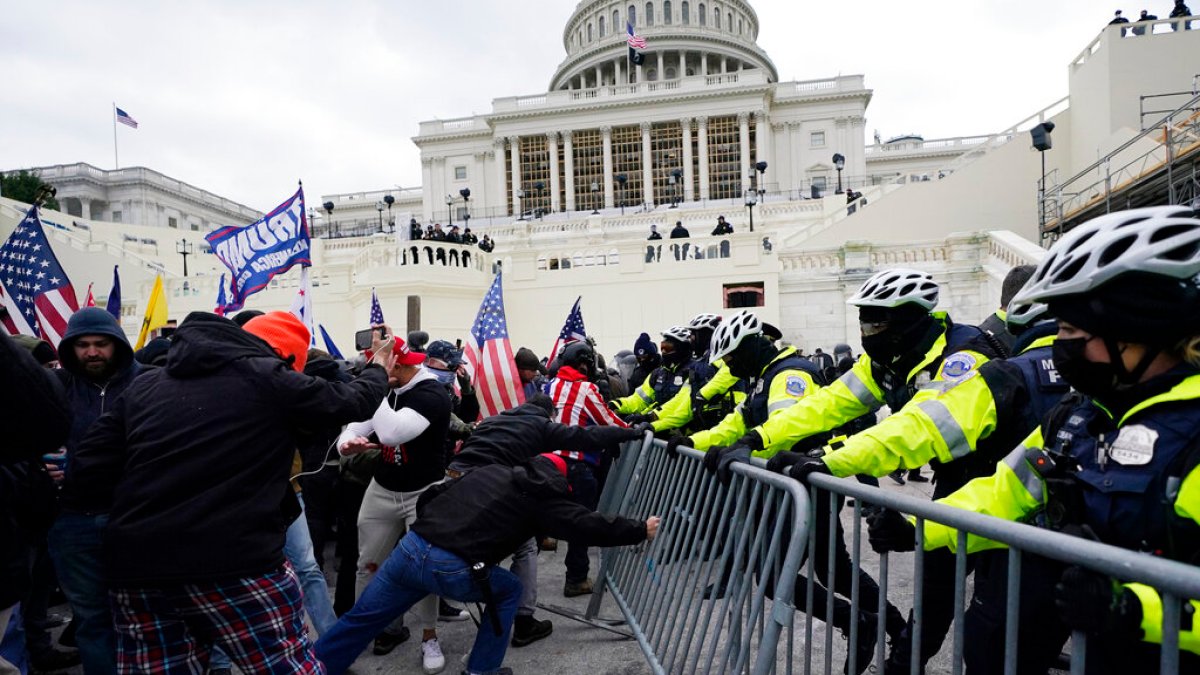Winnipeg protesters block landfill entrance, call for search for other MMIWG2S after alleged serial killing
WARNING: This story contains distressing details.
People visiting the Brady Road landfill south of Winnipeg on Sunday afternoon were turned away as protesters blocked access to the waste management facility to call on all levels of government to search for the remains of missing people.
Cambria Harris, the eldest daughter of Morgan Harris — one of four victims of alleged serial killer Jeremy Skibicki — wants the federal government to pick up the tab for any search.
Her mother’s remains are believed to be at the Prairie Green landfill north of Winnipeg, along with Marcedes Myran’s remains. Prairie Green paused operations on Dec. 8.
She wants operations at Brady to be paused, too, and said it’s not just about her mother’s and Myran’s remains being found.
“How many other women are they not looking for?” Cambria said.
The partial remains of Rebecca Contois, 24, were recovered from the Brady Road facility in June. She is also believed to have been killed by Skibicki.
Police say the location of the remains of a fourth victim, Mashkode Bizhiki’ikwe (Buffalo Woman), are still unknown. Skibicki is charged with first-degree murder with all four deaths, but the allegations haven’t been proven in court.
Around 1:30 p.m. on Sunday, blockades were put up on Brady Road near the entrance to the landfill, stopping traffic approaching from both the north and the west.
Nobody could drop off their trash.
The City of Winnipeg and Winnipeg Police Service both confirmed to CBC News that they were aware of the demonstration.

“People think that we’re all talk and no bite, and that we’re not gonna do anything,” Cambria said.
Cambria and her sister Kera Harris held a news conference from Ottawa on Dec. 6, revealing that Winnipeg police told them their mother’s remains were at Prairie Green.
Police had previously said the remains were believed to be at the Brady Road landfill.
At the same conference, the Harris sisters — supported by a number of First Nations organizations — demanded help from the federal government to address the ongoing crisis of missing and murdered Indigenous women, girls, and two-spirit people.
Now back in Winnipeg, Cambria is renewing her calls to the feds.
“It’s time the world realizes that Indigenous people have voices and we’re absolutely going to put up this fight,” she said.
Demonstration at Prairie Green
North of Winnipeg, a smaller demonstration took place at the Prairie Green landfill.
Harrison Powder was part of a group who lit a sacred fire and laid tobacco down to honour the lives of Harris and Myran.
“Something should have been done months ago,” Powder said.
Earlier this week, First Nations advocacy groups and Harris’ daughters called for the Winnipeg police chief Danny Smyth to resign.
“It shouldn’t take threats or us wanting the chief of police to resign before they consider taking action,” Powder said.
Smyth said in a statement that he won’t resign.
On Friday, the chair of the Winnipeg police board said that officials are trying to find a way to search for the bodies of Harris and Myran.

Any landfill search would be beyond the expertise of the Winnipeg Police Service because it would involve excavation, St. Norbert-Seine River Coun. Markus Chambers, the police board chair said.
If they move forward with a search, it would be for “humanitarian” purposes, Chambers said, rather than to contribute evidence for the case.
‘No problem turning around’
Mark Hellstern was turned away from the Brady landfill on Sunday.
He’s from Ontario, but has been in Winnipeg since October for work and has been following the news about the homicides. Hellstern immediately knew what the blockade was about.
“I totally respect it. I have no problem turning around,” he said.
Shawn Paterson was also turned away, but was slightly frustrated by the inconvenience.
He said he’s not sure how he will load his work truck tomorrow morning because he wasn’t able to drop off the debris.
“It doesn’t make things easy for me … [but] I know it’s not easy for them either,” Paterson said.
Cambria has previously said she would search for the remains herself if she had to, even though it’s dangerous.
“But why aren’t you helping me figure out how to retrieve these remains?” she asked on Sunday.
“It’s because you know that you were dealing with something far greater than your [own] potential.”
Support is available for anyone affected by details of this case. If you require support, you can contact Ka Ni Kanichihk’s Medicine Bear Counselling, Support and Elder Services at 204-594-6500, ext. 102 or 104 (within Winnipeg), or 1-888-953-5264 (outside Winnipeg).
Support is also available via Manitoba Keewatinowi Okimakanak’s Missing and Murdered Indigenous Women and Girls Liaison unit at 1-800-442-0488 or 204-677-1648.





